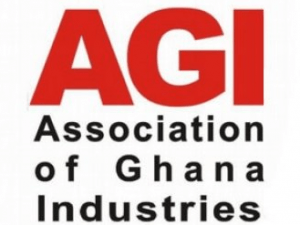AGI urges policy makers to use IBES survey as a guide
 The Association of Ghana Industries (AGI), has urged policy makers to use the Integrated Business Establishment Survey Phase I” (IBES I) report as a guide to policy formulation and national development.
The Association of Ghana Industries (AGI), has urged policy makers to use the Integrated Business Establishment Survey Phase I” (IBES I) report as a guide to policy formulation and national development.
Mr James Asare-Adjei, the President of the Association of Ghana Industries, said industry’s expectation is that the IBES would help monitor development trends and help industry to strategise on which sectors and business activities that must engage their attention to spur economic development.
He said the IBES census report is an important milestone for industry and the national economy as a whole.
“There is a growing demand for reliable and timely data on businesses and we all receive such requests from policy makers and our development partners quite often,” Mr Asare-Adjei said on Tuesday in Accra at the launch of the IBES census report.
“It is also likely the value added by the informal sector to Gross Domestic Product gets seriously underestimated and lack of this data distorts the structure of manufacturing and productivity as a whole,” he added.
The IBES I, which was authored by the Ghana Statistical Service (GSS), is the maiden economic census report to be conducted in the history of the country.
The report covers all sectors of the economy, which is unlike the three previous industrial censuses conducted in 1962, 1987 and 2003, which focused only on the industrial sector.
These economic units include all establishments undertaking some legal economic activity in Ghana.
As a result of its scope, the IBES constitutes the first comprehensive study, which seeks to collect, compile and analyse data on the level and structure of economic activity in Ghana.
Mr Asare-Adjei said the information from IBES I would give planners and policymakers a better insight of both the formal and informal sectors and prospects for a better structuring of business operations in Ghana.
“Indeed, I have no doubt the business register produced in IBES phase I will serve as an important denominator for the calculation of key indicators that impact on policy and business in general. It will also go a long way to complement our industrial statistics,” he said.
“There should be targeted interventions to help formalise the operations of the informal sector since a growing informal sector will not inure to the benefit of our fiscal policies.”
“If there is enough motivation for informal sector businesses to formalise their operations, I believe tax revenue mobilisation will be a lot easier for our tax authorities, Mr Asare-Adjei said.
He said data and information are very critical to planning and information if well-managed could become an important asset for the AGI.
“The GSS has, over the years, produced excellent relevant reports, which if used objectively and exhaustively, would enhance evidence-based decision-making,” Dr Philomena Nyarko, Government Statistician remarked at the launch.
“The four IBES reports to be launched today constitute a classical example. It is important to note, however, that statistical enquiries are very expensive and the only way we can have value for money is if the reports produced from the surveys are used extensively by all stakeholders,” she added.
The major purpose of the IBES is to produce establishment level statistics needed for Ghana’s development. Phase I of IBES was a census of all non-household establishments irrespective of size and included those involved in economic activities in the informal and formal sectors of the economy.
In Phase II, detailed information covering all 22 sub-sectors was collected from a sample of 31,152 establishments listed in phase I.
The preparatory activities for phase I started in 2014, which was followed by field data collection spanning September 2014 to February 2015.
The broad aim of Phase I of the IBES was to first provide the data needed to produce a business register of all establishments to serve as a basis for enhanced policy formulation and effective decision-making by government and business community.
Source: GNA
